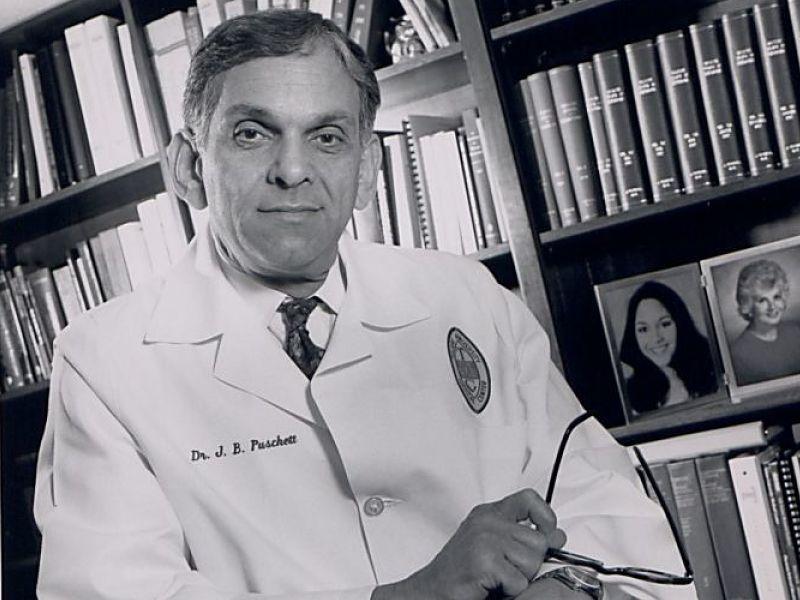Former Department of Medicine chair Dr. Jules Puschett passes away
With sorrow and respect, the School of Medicine learned that Jules Bernard Puschett, MD passed away on August 17, 2021, at his home in Temple, Texas. Dr. Puschett was Professor and Chair of the Department of Medicine from 1990 until 2005. During his 15-year tenure as Chairman he led a major rebuilding of the Department. His legacy includes significant expansion in all the missions of the department and extensive collaborations with many departments. The number of faculty grew tremendously and research funding of the department hit all-time highs.
Dr. Puschett won numerous Tulane Medical School honors, including the Gloria P. Walsh Award for teaching excellence, awarded by the graduating medical student class. The Department of Medicine received the "Outstanding Department" award from the medical students several times under his direction, and his leadership also greatly improved the graduate medical education in the Department. Dr. Puschett enjoyed national and international recognition as an academic leader, and he was the proverbial triple threat: succeeding in research, clinical care, and education.
Dr. Puschett was a native of Pennsylvania and attended Lehigh University on a full scholarship, where he was elected to Phi Beta Kappa and graduated Magna Cum Laude. Next, he attended the University of Pennsylvania School of Medicine (again earning a scholarship), where he obtained his MD. He then completed his internship at Jackson Memorial Hospital at the University of Miami, and served his country as a naval officer for three years.
His training continued with a medicine residency in Baltimore, followed by a fellowship in nephrology as an NIH sponsored postdoctoral fellow in the Renal and Electrolytes Section at the University of Pennsylvania. He began his faculty career at the University of Pennsylvania, soon rising to be the Chief of the Renal-Electrolyte Section at the Veterans Hospital. Next, he was recruited to be the head of the Renal-Electrolyte Division at Allegheny General Hospital at the University of Pittsburgh, where he built an excellent Division of Nephrology.
Dr. Puschett's scientific research accomplishments are notable. He began his career with interests in diuretics, phosphate, calcitrophic hormones and hypertension, producing more than 180 original articles, reviews, and chapters - many published in the most prestigious journals, including the Journal of Clinical Investigation, Science, and The New England Journal of Medicine. He edited a special issue of The American Journal of the Medical Sciences devoted to diuretics. In addition, he published six books resulting from his organization of four international conferences on diuretics, and he held numerous patents.
He reinvigorated the Kidney Council of the American Heart Association, also serving as its Chair. He helped advance the Southern Society of Clinical Investigation, which continues to be a strong organization for promoting research across the south, as well as on a national scale.
Dr. Puschett received many notable awards including AOA, Gift of Life Award from the National Kidney Foundation, Charter awardee of the A N. Richards Distinguished Achievement Award in Nephrology from the University of Pennsylvania, listing in Best Doctors in America, an Award for Excellence from Orleans Parish Medical Society, fellowships in several organizations (American Association for the Advancement of Science, American Heart Association, American College of Physicians), and Distinguished Achievement Award from the American Heart Association.
Dr. Puschett also had awards named in his honor, as the Musser-Burch Award to a graduating medical student senior was renamed the Musser-Burch-Puschett Award and a large research endowment was founded in his name at Tulane.
His leadership was characterized by tremendous dedication and commitment to the people working with him throughout his career, inspired great loyalty. The Department of Medicine still has many faculty members recruited or mentored by him. All remember him with deep respect and affection. The School of Medicine benefits from his legacy and will continue to do so.

